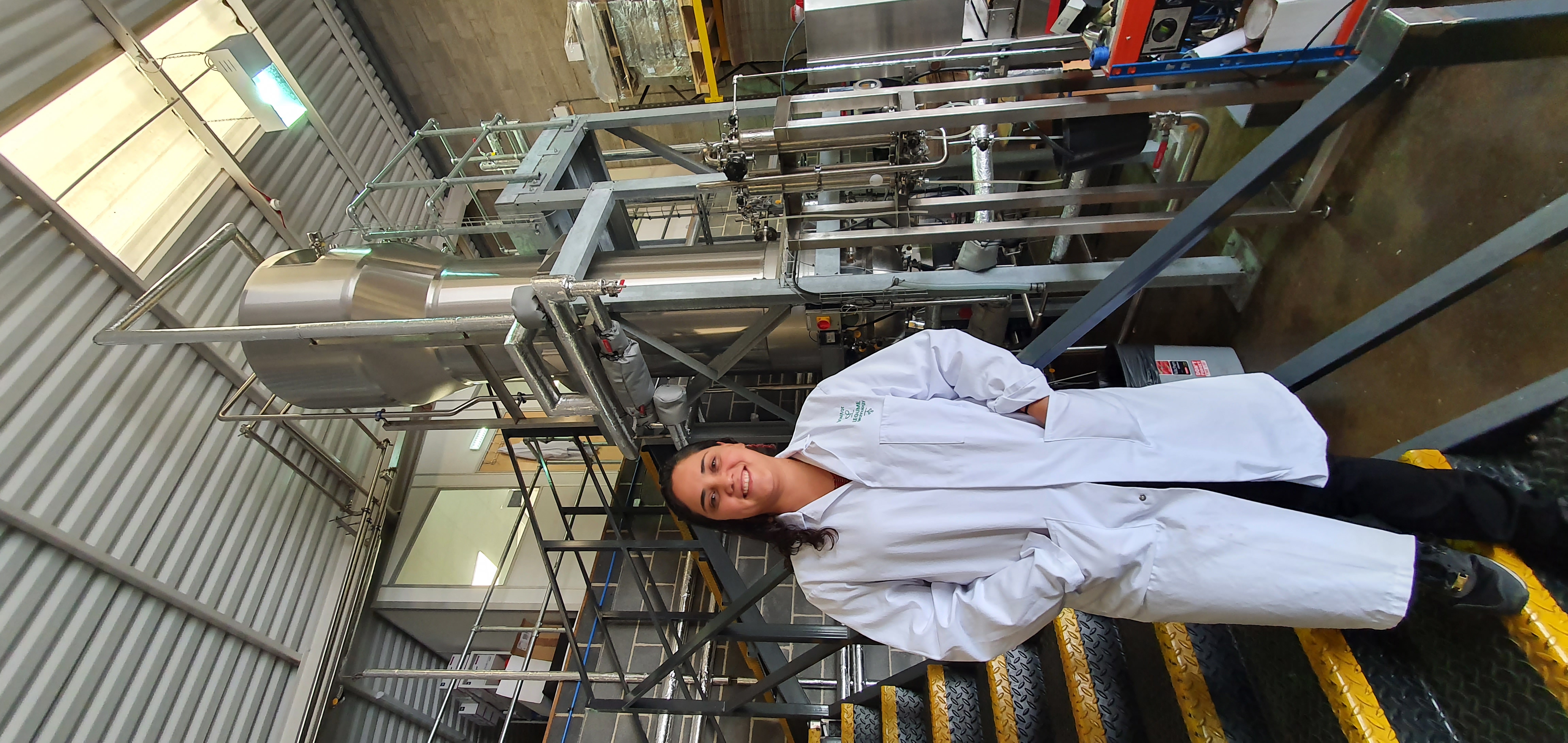Company lets researchers use their state-of-the-art equipment for research projects
A British company has made their commercial facilities available to Danish plant molecular biologists so that they can make a large-scale study of elite rhizobial strains using state-of-the art equipment to evaluate the suitability of these strains as future inoculants for high-protein faba bean plants. The researchers aim to replace imported plant proteins with locally produced faba beans.

For some years, researchers from the Department of Molecular Biology and Genetics at Aarhus University have been studying how to replace soybean as a protein source with faba beans. Faba bean is a high-protein grain legume crop with a high yield potential and the considerable potential for successful cultivation in northern latitudes in Europe, making it an excellent candidate for replacing imported plant protein with a local source.
Faba bean, which is mainly cultivated as an organic crop in Europe, can be supplemented with rhizobial inoculants to increase plant yields. The main issue is that inoculants often fail to compete for nodule occupancy against native rhizobia with inferior nitrogen-fixing abilities, resulting in low yields. When rhizobial inoculants are based on native strains with a high nitrogen-fixation ability, they often have superior performance in the field due to their genetic adaptations to the local environment.
Nevertheless, for elite strains to be considered suitable inoculants, they need to be assessed using the latest technological methods for inoculant formulation, with the aim of achieving high cell viability.
As the Department of Molecular Biology and Genetics at Aarhus University does not have the equipment required for large-scale production, Postdoc Marcela Mendoza Suárez from the Plant Molecular Biology group was fortunate to get a FEMS Industry Placement Grant. This gave her the opportunity to visit the British company Legume Technology in Nottingham for two weeks to use their state-or-the-art bioreactor to study and track the scaled-up pre-selected elite rhizobial strains to evaluate their suitability as future inoculants for faba bean plants.
Legume Technology was chosen because they have been producing inoculants for over 20 years and their products have been used successfully in more than 30 countries, including some in North and South America and Europe. This makes them a great industry partner to bring lab-based science a step closer to application.
Successful studies at the company
The two-week visit to the company was very fruitful, as it gave excellent quantitative results of the growth of the pre-selected rhizobial strains in commercial bioreactors. In addition, it gave an idea of the timeline and production cost of a final commercial inoculant. This knowledge is key to encourage more farmers to substitute chemical fertilisers with biofertiliser.
Postdoc Marcela Mendoza Suárez:
“In terms of my professional life, a very important lesson was to realise that the science we do in our lab is very similar to the one performed in industry. Therefore, I’m sure our research can be easily translated to real applications in greater proportions than we think.”
As the study was successful, the group plans to apply for grants that can help them discover if the result from their research has the potential for commercialisation.
Marcela Mendoza Suárez states:
“I encourage postdocs and PhD students to apply for this grant, whether they plan to continue in academia or are curious about moving to industry. Learning how things are done in the industry can give you very good ideas either for your future research or for grant applications.”
Marcela’s supervisor, Associate Professor Stig Uggerhøj Andersen, coordinates a large research project, ProFaba, which works to promote protein production in Europe by improving the faba bean as a European protein crop.
Read more about the project.
For further information, please contact
Postdoc Marcela Mendoza Suárez
Department of Molecular Biology
Aarhus University, Denmark
marcela@mbg.au.dk
Associate Professor Stig U. Andersen
Department of Molecular Biology and Genetics
Aarhus University, Denmark
sua@mbg.au.dk
